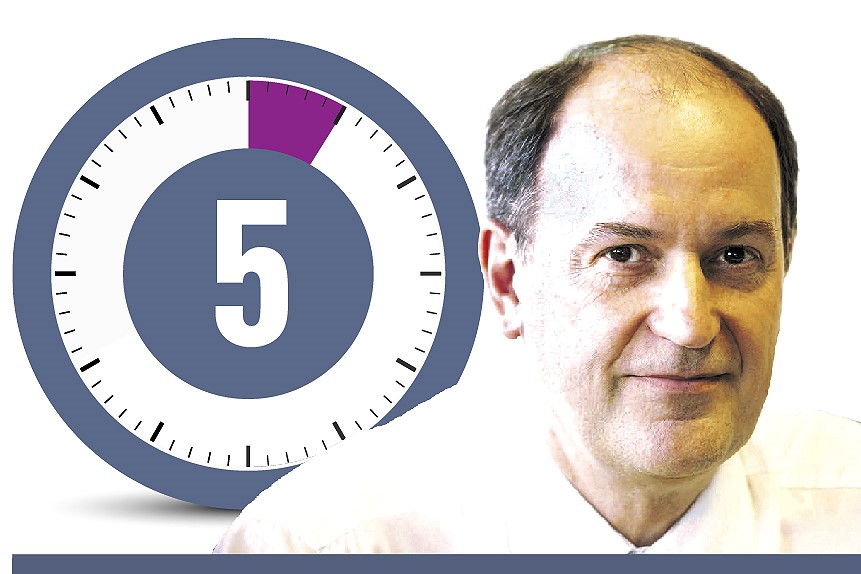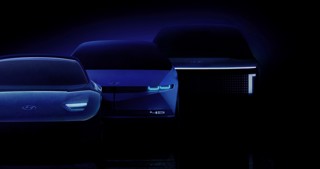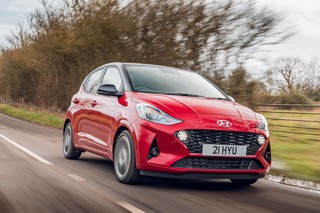We launched our business intelligence (BI)solution, to let dealers design their own dashboards and analytics. Our next big development involved extending our suite of mobile, role-based apps. This splits functionality of the dealership management system (DMS) by role for access from any mobile device and we’ve already launched Tech+, Host+, Stock+ and Pay+.
We have a 22% market share, about 1,000 dealers, and that includes integration with all manufacturers’ systems. We are expecting growth of 10% this year.
Neville Briggs, the managing director of Pinewood, explains why the DMS market is moving towards mobile usage and self-service.
What have been the big milestones for Pinewood in the past 12 months? What are the next big developments?
We launched our business intelligence (BI)solution, to let dealers design their own dashboards and analytics. Our next big development involved extending our suite of mobile, role-based apps. This splits functionality of the dealership management system (DMS) by role for access from any mobile device and we’ve already launched Tech+, Host+, Stock+ and Pay+.
How many dealers is Pinewood working with in the UK and what are the growth expectations for the next 12 months?
We have a 22% market share, about 1,000 dealers, and that includes integration with all manufacturers’ systems. We are expecting growth of 10% this year.
With Pendragon as Pinewood’s parent company, how many customers are from outside that group?
It usually surprises people, but 82% of our business is outside Pendragon. There’s no preferential treatment, updates are rolled out to all customers at the same time and Pinewood is treated as a separate company. If 82% of our business is from outside Pendragon, then those customers are the driving force of our business.
What does the future of DMS look like?
There will be a drive towards self-service, allowing customers to manage their experience online. There’s also going to be a further push to go mobile, resulting in more app-based features. I think we’ll see a continued move from dealers to choose a cloud-based option. As new car sales decline, we’ll see dealers looking to make better use of the data they have available in their DMS.
How is the industry coping with integration and how is Pinewood performing on that front?
We’ve always taken the approach of developing integration at our own cost, meaning we have to focus on speed, delivery and usability. As we have grown, we find manufacturers approaching us to help build integration. Some are well organised and have modern, well
documented, secure interfaces. Others have some legacy issues to overcome.
DMS integration is a problem for multi-franchise dealer groups. What is being done in this area to help?
We have designed our integration to follow the car, not the organisational structure. This means dealers don’t need to design businesses to suit a franchise’s template, but can combine operations to be as efficient as possible while supporting the needs of different systems and processes.
Does Pinewood offer an open-system interface with which third parties can integrate?
We have a range of third-party APIs (this allows connections between different IT systems) for service bookings, sales enquiries and orders and parts requests. We work closely with all the major players to help dealers operate efficiently and we have a list of approved selected partners.
When will it be possible to track information through a DMS if a dealer wants to know what a customer has done before walking into the dealership?
This is already possible when you combine data from the consumer-facing services with transactional data in the DMS. This is why BI is so important, as it can combine data from a range of sources to provide a real picture of customer interests and activity, all the way from the first enquiry.
What are your predictions for the future of automotive retail?
More multi-franchise operations will exist as dealers begin to consolidate. There will be a drive towards reducing overheads, leading to process simplification and dealers streamlining operations. As new car sales decline, a growth in the sale of electric vehicles with lower maintenance requirements will drive dealers to compete with fast-fit operations. This means we are likely to see a reduction of the fast-fit and small repair shops.
What’s been the biggest opportunity for growth for Pinewood this year?
Internationally. In the past 12 months, we have implemented in six new countries.
What do you see as the biggest threats to your business this year?
Consolidation of manufacturers and dealers. But it also presents an opportunity as dealers look for cost savings and efficiency. We can deliver both.
What are the biggest threats to the franchised dealer model?
Investment requirements and a lack of ambition to grasp the new. Fortunately, our customers tend to be the type that embrace new technology. Let’s get rid of clipboards and T Cards!
What sort of impact is Brexit having on the industry?
Pinewood has more than 200 employees, from 21 nationalities, at our Birmingham office, but the UK is now a less appealing place to build a career. Applications from candidates in the EU are a fraction of what they used to be. We’re also working to build home-grown talent so about 10% of our team are working on degree apprenticeships and placements.
Login to continue reading
Or register with AM-online to keep up to date with the latest UK automotive retail industry news and insight.



















Login to comment
Comments
No comments have been made yet.